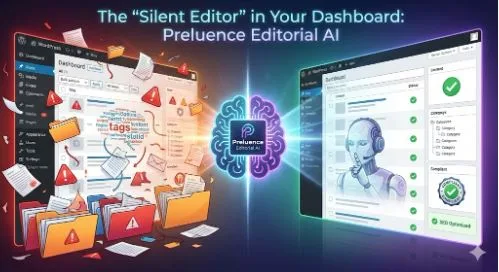Can You Really Trust Your AI Chatbot with Your Most Personal Secrets?
AI-powered chatbots like Character.ai and flipped.chat have exploded in popularity, with millions relying on them for emotional support and even sharing their most intimate thoughts. However, as adoption grows, so too do concerns about privacy and personal data protection within AI chatbots. Users are asking, “When I share my most intimate secrets, can I trust that my data will be kept secure?”
Understanding Privacy in AI Chatbots
Chatbots have changed a lot in the past few years. Back then, they could only answer simple text questions. Now, they can understand your voice, interpret images, and respond based on context. Talking to them feels much more like chatting with a real person—but that also brings new concerns about privacy and data security.
Many people search online for things like “chatbot privacy” or “AI app data security” because they want to know exactly what information is collected, how it’s used, and whether it’s properly protected. When platforms aren’t clear about this, users naturally worry that their data could be exposed or sold—and that makes them hesitant to use these services.
Flipped’s Transparent Privacy Practices
In the competitive AI chatbot landscape, Flipped has stood out for its detailed and user-friendly privacy policy, which clearly communicates how user data is handled:
- Minimal and Necessary Data Collection: Flipped collects only personal information that users voluntarily provide, such as name and email address. Additionally, device-related data like IP addresses and usage logs are collected automatically but are strictly used for maintaining and improving the service. Flipped explicitly does not process sensitive personal data and does not receive third-party personal information.
- Purpose-Limited Data Usage: The data collected is used primarily to provide and enhance the chatbot service, secure user accounts, and comply with legal requirements. Flipped confirms it neither sells nor shares personal data for commercial purposes and has not done so in the last 12 months.
- Data Security Measures: Flipped employs industry-standard security protocols. All data transmissions to Flipped servers use HTTPS encryption to protect against interception. Stored data is encrypted using recognized security standards, minimizing the risk of unauthorized access.
- User Rights and Control: Users can access, correct, delete, or restrict their personal information through straightforward processes. Verification steps ensure only authorized users can make such requests, protecting against fraudulent access.
- Data Retention Policy: Personal data is retained only as long as necessary to fulfill service functions. Once data becomes obsolete, it is securely deleted or anonymized.
What Flipped Users Say
To understand how privacy policies affect user trust, we interviewed several Flipped users. They shared candid views on their experiences:
- “I was skeptical about sharing personal details with an AI at first,” said a user from the UK. “But Flipped’s clear, detailed privacy policy reassured me that my data is safe, which made me comfortable opening up more.”
- Another user from Canada noted, “The ability to request deletion or correction of my data at any time gives me confidence. I appreciate that Flipped is upfront about how they protect our information.”
- A US user added, “Knowing that Flipped uses HTTPS and strong encryption means a lot to me. It’s clear they take privacy seriously.”
Why Privacy Policies Matter More Than Ever
With the explosion of AI chatbots in the consumer market, privacy policies have become a key factor in user decision-making. A recent survey showed that 68% of AI chatbot users check privacy policies before committing to a service, and 45% have switched services due to privacy concerns.
Regulations like the General Data Protection Regulation (GDPR) in Europe and the California Consumer Privacy Act (CCPA) in the US enforce strict data protection standards. Responsible companies like Flipped align their policies with these regulations, ensuring users have rights such as data access, correction, and deletion.
Technical Safeguards and Encryption
Technical security is foundational for trustworthy AI chatbots. HTTPS (Hypertext Transfer Protocol Secure) encrypts data in transit, preventing interception or tampering by malicious actors. Industry-standard encryption protocols safeguard stored data from unauthorized access.
Flipped uses HTTPS for all user data transmissions, ensuring that personal information exchanged between users’ devices and Flipped’s servers remains confidential. While no system can guarantee absolute security, these measures significantly reduce risks.
Challenges and the Road Ahead
AI chatbot providers face ongoing challenges balancing innovation with privacy. Multi-modal AI systems integrating voice and image data increase the complexity of data protection.
Transparency about data handling and giving users control over their information are critical to building trust. Clear, accessible privacy policies that explain data collection, usage, and security measures help users make informed choices.
Final Thoughts
Can you really trust your AI chatbot with your most personal secrets? The answer depends largely on the platform’s privacy and security practices. Flipped’s transparent approach, robust data protections, and respect for user rights offer a model for responsible AI companionship.
For those searching for “AI chatbot privacy,” “personal data protection,” or “secure AI chatbots,” reviewing a platform’s privacy policy is a crucial first step. As AI becomes ever more personal, privacy and trust must remain at the forefront.




